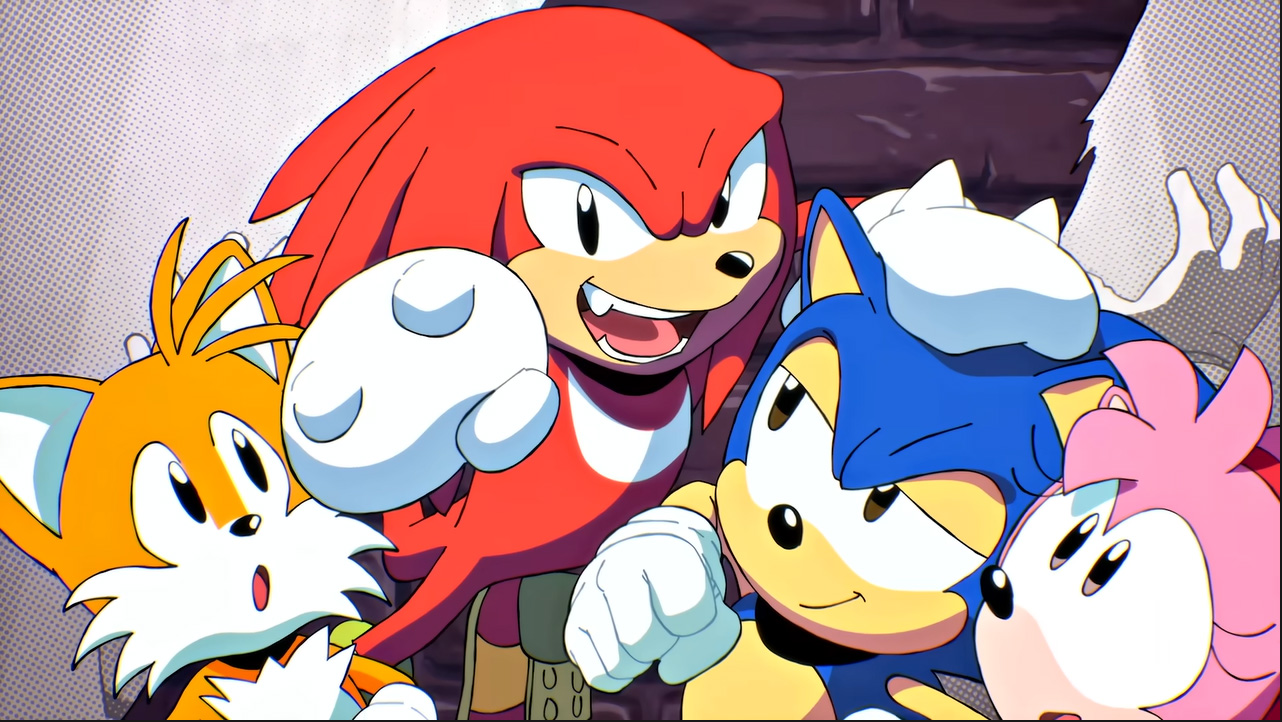
It’s amazing to think that Sonic has stuck around to become one of the oldest video game mascots out there.
The hedgehog’s conceptual history is well-documented, but it’s still a fascinating story. Sega originally wanted to create a character as a basis for a marquee series to rival Nintendo’s Mario, which reignited the video game market in the mid-to-late 1980s. The aim was to make a true icon that would charm millions in both design and attitude.
It’s interesting to note that Sega already had Alex Kidd as a mascot. If that’s your first time hearing that name, that’s because Sega abandoned the poor kid and designed an entirely different character.
After a few concept designs, the development team settled on a blue hedgehog with snazzy red shoes, and, in turn, Sonic the Hedgehog was born.
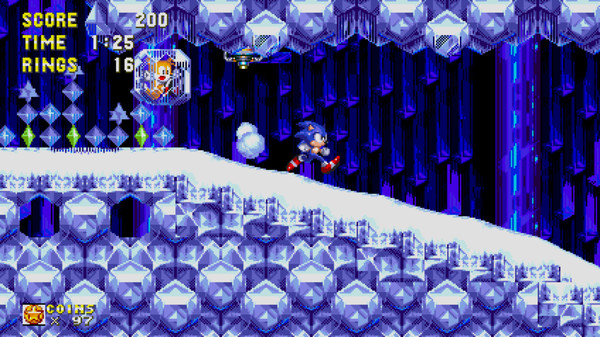
Sega’s entire branding of Sonic the Hedgehog consisted of two traits: fast and brimming with attitude. This was reflected in the gaming giant’s advertisements that constantly mocked Nintendo. For example, one of the most iconic advertisements for the Sega Genesis (or Mega Drive for Europe) was “Genesis does what Nintendon’t.”
However, it’s one thing to declare Nintendo your rival, but it’s another to actually compete with the company. Yet, Sega managed to do just that.
Sonic the Hedgehog was released in 1991 and took the world by storm, selling over two million copies by the end of the year. It’s important to note that Sonic wasn’t actually a Genesis launch title, yet it still helped the console sell extremely well.
Now that Sonic was an established video game character and the overly confident marketing paid off, a sequel was greenlit in late 1991 and released just one year after with the help of current PlayStation designer Mark Cerny.
Sega’s very own “bubble economy”
After the phenomenal success of Sonic the Hedgehog 2 (and spending $10 million on marketing), Sega was all-in on the hedgehog fever. The Japanese company would produce various spin-off games and tv shows, each with varying degrees of quality.
This also led to two mainline games being released in a span of five months, Sonic CD (1993) and Sonic the Hedgehog 3 & Knuckles (1994).
The rest, as they say, is history. Sonic the Hedgehog achieved its status as an icon, and Sega raked in the cash.
This was the company’s golden era and almost resembled Japan’s own economic bubble in a sense. From a lucrative McDonald’s partnership to sponsoring an entire Formula 1 Grand Prix race, Sega was spending a lot of money without much thought.
Yes, there was THAT lap but 11th April 1993 was also the day Sonic the Hedgehog rocked an F1 podium. Via @DRIVETRIBE. https://t.co/MxAeKB7oIc pic.twitter.com/Pf3Sqkm6Wd
— Grand Prix Diary (@GrandPrixDiary) April 11, 2018
This is in contrast to the Sonic the Hedgehog franchise that we know today.
The term “roller coaster” is often used to describe how you felt playing Sonic the Hedgehog games. What once encapsulated Sonic’s gameplay now perfectly describes what the mascot is and has been for the last two decades.
When Sonic games are done right, there have been great highs, but there are also lows that make you wonder why you love the hedgehog in the first place.
Sonic Origins celebrates the hedgehog’s 31st anniversary by offering a collection from that golden era.
For better and for worse, the package is a perfect encapsulation of this franchise’s history.
Celebrating the anniversary by revisiting the past
I don’t have any childhood memories of the “classic” games as I grew up in the 3D Sonic era, starting with Sonic Heroes. The remastered port of Sonic CD was the only classic title that I spent many hours playing as a teenager.
As a result, I was eager to play this collection as it offered a convenient way to play older games in the series with quality-of-life enhancements. It also brings a remaster of Sonic 3 & Knuckles, a game rumoured to be mired in licensing issues.
Let’s start with some of the features that Sonic Origins offers. All four classic games offer four modes titled ‘Anniversary,’ ‘Classic,’ ‘Boss Rush,’ and ‘Mission.’
The Anniversary Mode gives Sonic the drop dash ability from Sonic Mania, allowing players to initiate a spin dash in the air. This lets you keep the momentum going through stages and helps make the experience feel fresh if you’ve already played the classic games multiple times.
The backbone of this new mode is Taxman’s (Christian White) and Headcannon’s mobile Sonic remasters, which were built using the former’s own game engine. As a result, Sonic has the spin dash by default in Sonic and there are new options in debug mode. Sonic’s friends, Tails and Knuckles, are also playable throughout the collection, with the exception of the latter in Sonic CD.
Anniversary mode also removes lives entirely and instead introduces a coin system. These coins are collected through many methods, including acquiring points or finding them in levels.
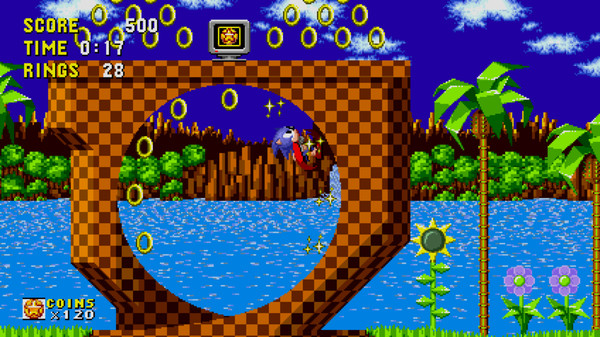
These serve two purposes. One use is to unlock items in the museum that holds concept art and other digital memorabilia. The second allows you to retry special stages.
This is the greatest quality-of-life improvement that Sonic Origins introduces, as I often had trouble collecting the chaos emeralds in the first two titles.
And if you love the life system, it’s still an option through classic mode, which lets you play the various games as it was originally released.
The Boss Rush mode is self-explanatory. If you enjoy beating up Eggman’s contraptions without going through the stages, this mode is for you.
Mission mode also sounds like what it describes. It provides challenges between the four games that will grant you more coins.
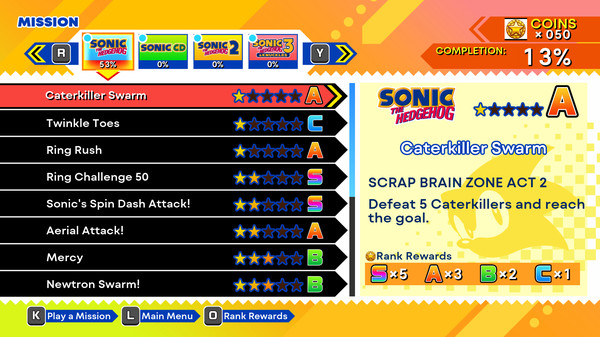
Overall, I think Sonic Origins offers the best of both worlds, providing players with the choice to either play the original release or a remastered mode with all of the bells and whistles.
Re-experiencing Sega’s golden era by making new memories
I thoroughly enjoyed playing both Sonic 2 and Sonic 3 & Knuckles. These are exceptional games with lots of replayability, especially the latter. If you’re a new fan that enjoyed Sonic Mania or just like 2D platformers, these titles should be on your list.
As previously mentioned, my fondest memories of the 2D era come from Sonic CD. I love this game, from the exceptional soundtrack and special stages to the more adventurous level design. It remains my favourite barring Sonic 3 & Knuckles, and I’ll happily admit that nostalgia plays a huge factor. However, taking off my slightly rose-tinted glasses, Sonic CD offers a different take on the typical Sonic formula that I think those who want a more explorational level layout will enjoy.
Then there’s the original Sonic the Hedgehog. While it’s my least favourite game out of this collection, I did appreciate using the drop dash to progress through stages faster because this game is notoriously known for being a mixed bag in terms of level design (wait until you experience Marble Garden Zone for the first time).
However, if you really want to enjoy Sonic 1, I highly recommend using the debug mode and enabling the elemental shields from Sonic 3 & Knuckles. Not only does it make the game more enjoyable, it oddly makes the stage design better. It rewards the player for keeping the elemental shields by breezing through obstacles like lava, but it‘s punishing if you get hit.
This version is also slightly better than the Taxman mobile versions because of the abolishment of lives, making your playthrough worry-free without a game over screen in sight. Just be warned that you won’t be able to save your game.
It’s worth mentioning that each title has its own special animated cutscenes to add a little story element that links the games together. While it’s not much, it’s a very charming way to highlight how much character the Sonic franchise has at its disposal.
As a whole, Sonic Origins does a bang-up job showcasing why classic games are held in high regard. The Anniversary mode adds great features without destroying the essence of classic Sonic gameplay, and if that’s not your forte, there’s still the original version that’s playable.
Sonic Origins’ Bubble Burst
While Sonic Origins offers several improvements, it also has its fair share of issues.
Originally, I meant to review this game on my laptop. While not the strongest computer, it should have been more than enough to run a collection of 2D games from the 1990s.
Instead, I was greeted by immense frame rate drops when the intro cutscene played. For some reason, the default setting is set to a 4K resolution, which causes the game to run at the speed of molasses. However, that was an easy fix.
The deal-breaker that I couldn’t solve was that Sonic Origins would immediately crash right after the first loading screen. This happened frequently, and it was only occasionally that I was able to play any of the Sonic games. Despite trying some remedies from other people that had the same issue on the Steam Community page, I couldn’t fix it and begrudgingly refunded the title.
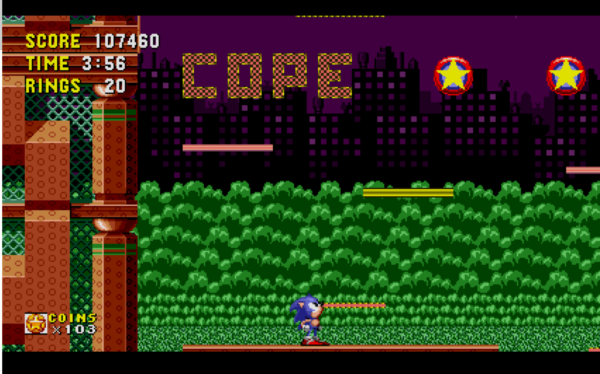
I still don’t understand the crashing problems, and frankly, it’s unacceptable that this is an issue in the first place.
There are also multiple bugs in the collection. While I never personally ran into any problems on the Xbox Series S, there were enough optimization issues to warrant a patch.
However, this game had problems on the development side and that explains why Sonic Origins is unpolished. The founder of Headcannon, who contributed to the Sonic 1 and Sonic 2 mobile remasters, was “very unhappy” with the final product and documented some of the development hell.
We asked to do major fixes near submission but weren't allowed due to submission and approval rules. We asked about delays early and repeatedly but were told they weren't possible. We offered to come back for post-release fixes and updates- we do not yet know if this is happening
— Stealth (@HCStealth) June 24, 2022
Another issue with this collection actually stems from Sonic 3 & Knuckles. Remember when I said earlier about the game having licensing issues? Well, along with the coveted McDonald’s sponsorship that rushed the game’s development, Sega was rumoured to have gotten Michael Jackson to help out with the composition.
However, there were problems behind the scenes that left Michael Jackson uncredited. In the 1997 PC version, some tracks were replaced with the prototype music. This rumour was recently confirmed in a tweet from Yuji Naka, the director of Sonic 3 & Knuckles, 28 years later.
Oh my god, the music for Sonic 3 has changed, even though SEGA Official uses Michael Jackson's music.
— Yuji Naka / 中 裕司 (@nakayuji) June 23, 2022
As a result, Sonic Origins suffered the same fate as the licensing issues weren’t resolved.
Instead, the prototype tracks were remixed by Jun Senoue and, unfortunately, sound horrible. While I’m indifferent about Casino Night Zone and Launch Base Zone, the dropoff in quality is really felt in Ice Cap Zone.
If you think I’m being a bit overly dramatic, there’s a great meme video that compares the two tracks.
There is one last issue that needs to be addressed. With the release of Sonic Origins, Sega decided to delist all of the classic titles, resulting in this game being the only legal method to play Sonic 1, Sonic 2, Sonic CD and Sonic 3 and Knuckles.
Why is this an issue?
While it’s nice to have this entire collection with the quality of life additions, those that just want to play Sonic 2 or Sonic 3 are forced to buy Sonic Origins instead.
Sega is also charging a considerable amount of money ($50) for what are essentially just ports of existing remasters. To put into perspective, the iOS/Android counterparts, except for Sonic 3, are only $2.79 each, ad-free.
Not only does it make the classic games more inaccessible, but the Sonic modding community is also affected, as you can’t implement any pre-existing mods into the Sonic titles in the collection.
Considering both Sonic Mania lead developer Christian Whitehead and Headcannon were part of the Sonic modding community, this feels like a slap in the face to those who worked hard to keep these classic games alive.
The end of the roller coaster
Overall, if you are a fan of the classic games or want an easier way to access these on consoles, Sonic Origins does a good job of providing improvements while keeping the integrity of the original releases.
Though Sega’s golden era burst after the 90s, the passion and commitment to the blue hedgehog remain strong.
While his career has been a roller coaster, there’s a reason why Sonic the Hedgehog is still loved by many fans, including myself. There’s never a dull moment, whether it’s a fresh take on gameplay, his oozing attitude or the fantastic music that continues to bless this franchise.
Happy 31st birthday Sonic. I hope your next 3D adventure is a great ride.
Sonic Origins is available on the Nintendo Switch, PlayStation 4, PlayStation 5, Xbox One, Xbox Series/X and PC via Steam or Epic Games Store for $53.
Image credit: Sega
MobileSyrup may earn a commission from purchases made via our links, which helps fund the journalism we provide free on our website. These links do not influence our editorial content. Support us here.


